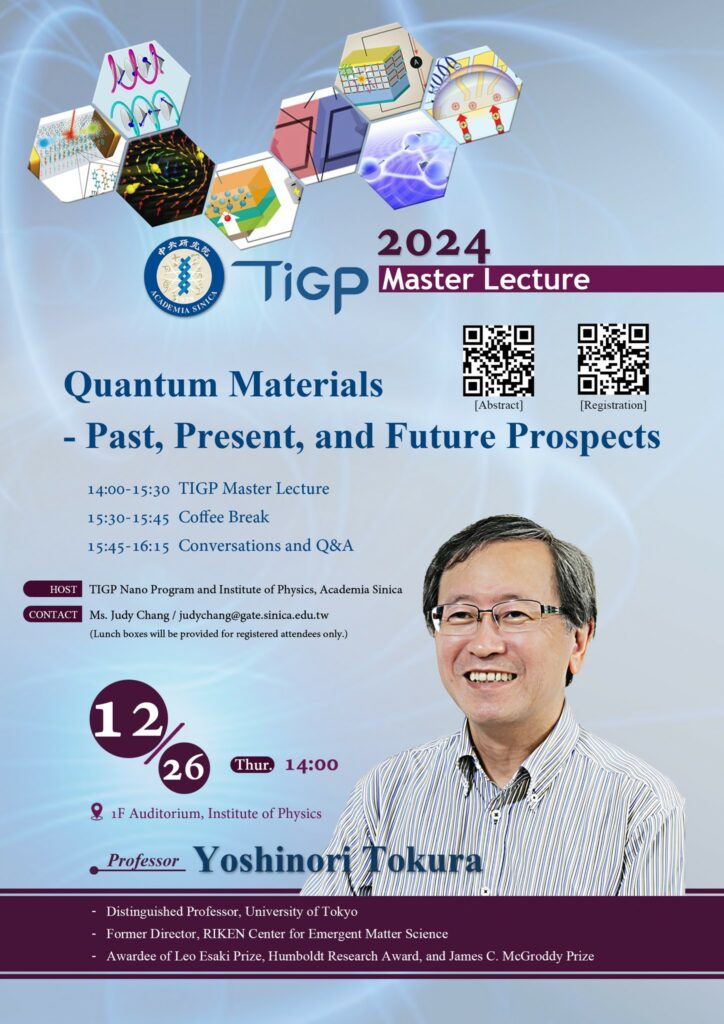活動消息來源
(請以主辦單位發佈的內容為準)
日期:2024/12/26(四)(活動結束)
時間:14:00 -17:00
地點:中央研究院物理研究所一樓演講廳
演講者:十倉好紀特聘教授 (日本東京大學) Distinguished Professor Yoshinori Tokura (University of Tokyo, Japan)
摘要:
Quantum materials exhibit emergent electronic properties and related functions that are profoundly explained by quantum mechanics, surpassing the semi-classical picture of electrons. This talk exemplifies key developments and progress over the last three decades and outlines future challenges. Let us consider how the development of quantum materials and their functions can potentially contribute to advancements in a sustainable society.
The discovery of high-temperature superconductivity (high-Tc) in copper oxides and the subsequent research fever in the late 1980s and 1990s completely altered the landscape of materials physics research. It became the common understanding that strong electron correlation, namely Coulomb repulsive interaction among the conduction electrons, is an important notion to produce unprecedented and intriguing electronic properties and functions. On the one hand, the semiconductor physics with negligible electron correlation effect has been extensively developed to form the basis for today’s semiconductor technology. One of the big outcomes in physics from semiconductor research was the discovery of the quantum Hall effect (QHE) in 1980; for the development of quantum Hall physics, three Nobel prizes have been awarded. In particular, the concept of topology in condensed matter originates in the QHE and is now a fundamental design principle for quantum materials as ignited by the discovery of topological insulators in 2005. Here, defining quantum materials as those that show strongly correlated electrons as well as magnetic, ferroelectric, superconducting and topological orders, we draw on several families of quantum materials to focus on research advances in this highly active and evolving field over the last three decades or so.
對象:一般社會大眾
報名網址:https://www.phys.sinica.edu.tw/lecture_detail.php?id=2973
更多資訊
主辦單位:中央研究院物理研究所







